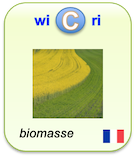Links to Exploration step
Le document en format XML
<record><TEI><teiHeader><fileDesc><titleStmt><title xml:lang="en">A Validation of the Inventory of Callous-Unemotional Traits in a Community Sample of Young Adult Males</title><author><name sortKey="Byrd, Amy L" sort="Byrd, Amy L" uniqKey="Byrd A" first="Amy L." last="Byrd">Amy L. Byrd</name></author><author><name sortKey="Kahn, Rachel E" sort="Kahn, Rachel E" uniqKey="Kahn R" first="Rachel E." last="Kahn">Rachel E. Kahn</name></author><author><name sortKey="Pardini, Dustin A" sort="Pardini, Dustin A" uniqKey="Pardini D" first="Dustin A." last="Pardini">Dustin A. Pardini</name></author></titleStmt><publicationStmt><idno type="wicri:source">PMC</idno><idno type="pmid">24357894</idno><idno type="pmc">3864815</idno><idno type="url">http://www.ncbi.nlm.nih.gov/pmc/articles/PMC3864815</idno><idno type="RBID">PMC:3864815</idno><idno type="doi">10.1007/s10862-012-9315-4</idno><date when="2012">2012</date><idno type="wicri:Area/Pmc/Corpus">000156</idno><idno type="wicri:explorRef" wicri:stream="Pmc" wicri:step="Corpus" wicri:corpus="PMC">000156</idno></publicationStmt><sourceDesc><biblStruct><analytic><title xml:lang="en" level="a" type="main">A Validation of the Inventory of Callous-Unemotional Traits in a Community Sample of Young Adult Males</title><author><name sortKey="Byrd, Amy L" sort="Byrd, Amy L" uniqKey="Byrd A" first="Amy L." last="Byrd">Amy L. Byrd</name></author><author><name sortKey="Kahn, Rachel E" sort="Kahn, Rachel E" uniqKey="Kahn R" first="Rachel E." last="Kahn">Rachel E. Kahn</name></author><author><name sortKey="Pardini, Dustin A" sort="Pardini, Dustin A" uniqKey="Pardini D" first="Dustin A." last="Pardini">Dustin A. Pardini</name></author></analytic><series><title level="j">Journal of psychopathology and behavioral assessment</title><idno type="ISSN">0882-2689</idno><imprint><date when="2012">2012</date></imprint></series></biblStruct></sourceDesc></fileDesc><profileDesc><textClass></textClass></profileDesc></teiHeader><front><div type="abstract" xml:lang="en"><p id="P1">Callous-unemotional (CU) traits have been shown to delineate a subgroup of individuals at high risk for exhibiting severe and persistent criminal behavior. The Inventory of Callous-Unemotional Traits (ICU; <xref ref-type="bibr" rid="R19">Frick 2004</xref>) was recently developed as a comprehensive rating scale designed to measure multiple facets of CU traits. However, validation of this measure has been limited to youth in adolescence and emerging adulthood (age range=12–20), leaving questions about the utility of this measure in early adulthood unanswered. The current study evaluated the factor structure of the ICU within a racially diverse and well characterized community sample of adult males (<italic>n</italic>=425) using exploratory factor analysis (EFA) and confirmatory factor analysis (CFA). While results found the best fitting model to be the three-bifactor structure that has been previously reported in adolescent samples, the fit indices were only marginally acceptable and suggest the need for scale refinement. Total and subscales scores demonstrated significant and distinct associations with relevant external criteria (e.g., delinquency, psychopathy, psychopathology, psychosocial functioning). Implications and directions for future research are discussed.</p></div></front></TEI><pmc article-type="research-article"><pmc-comment>The publisher of this article does not allow downloading of the full text in XML form.</pmc-comment>
<pmc-dir>properties manuscript</pmc-dir>
<front><journal-meta><journal-id journal-id-type="nlm-journal-id">8608482</journal-id><journal-id journal-id-type="pubmed-jr-id">32799</journal-id><journal-id journal-id-type="nlm-ta">J Psychopathol Behav Assess</journal-id><journal-id journal-id-type="iso-abbrev">J Psychopathol Behav Assess</journal-id><journal-title-group><journal-title>Journal of psychopathology and behavioral assessment</journal-title></journal-title-group><issn pub-type="ppub">0882-2689</issn></journal-meta><article-meta><article-id pub-id-type="pmid">24357894</article-id><article-id pub-id-type="pmc">3864815</article-id><article-id pub-id-type="doi">10.1007/s10862-012-9315-4</article-id><article-id pub-id-type="manuscript">NIHMS478875</article-id><article-categories><subj-group subj-group-type="heading"><subject>Article</subject></subj-group></article-categories><title-group><article-title>A Validation of the Inventory of Callous-Unemotional Traits in a Community Sample of Young Adult Males</article-title></title-group><contrib-group><contrib contrib-type="author" corresp="yes"><name><surname>Byrd</surname><given-names>Amy L.</given-names></name><aff id="A1">Department of Psychology, University of Pittsburgh, Sterling Plaza, Suite 408, 201 North Craig St., Pittsburgh, PA 15213, USA<email>alb202@pitt.edu</email></aff></contrib><contrib contrib-type="author"><name><surname>Kahn</surname><given-names>Rachel E.</given-names></name><aff id="A2">Department of Psychology, University of New Orleans, New Orleans, LA, USA<email>rkahn@uno.edu</email></aff></contrib><contrib contrib-type="author"><name><surname>Pardini</surname><given-names>Dustin A.</given-names></name><aff id="A3">Department of Psychiatry, University of Pittsburgh Medical Center, Pittsburgh, PA, USA<email>dap38@pitt.edu</email></aff></contrib></contrib-group><pub-date pub-type="nihms-submitted"><day>31</day><month>5</month><year>2013</year></pub-date><pub-date pub-type="epub"><day>4</day><month>9</month><year>2012</year></pub-date><pub-date pub-type="ppub"><day>1</day><month>3</month><year>2013</year></pub-date><pub-date pub-type="pmc-release"><day>01</day><month>3</month><year>2014</year></pub-date><volume>35</volume><issue>1</issue><elocation-id>10.1007/s10862-012-9315-4</elocation-id><permissions><copyright-statement>© Springer Science+Business Media, LLC 2012</copyright-statement><copyright-year>2012</copyright-year></permissions><abstract><p id="P1">Callous-unemotional (CU) traits have been shown to delineate a subgroup of individuals at high risk for exhibiting severe and persistent criminal behavior. The Inventory of Callous-Unemotional Traits (ICU; <xref ref-type="bibr" rid="R19">Frick 2004</xref>) was recently developed as a comprehensive rating scale designed to measure multiple facets of CU traits. However, validation of this measure has been limited to youth in adolescence and emerging adulthood (age range=12–20), leaving questions about the utility of this measure in early adulthood unanswered. The current study evaluated the factor structure of the ICU within a racially diverse and well characterized community sample of adult males (<italic>n</italic>=425) using exploratory factor analysis (EFA) and confirmatory factor analysis (CFA). While results found the best fitting model to be the three-bifactor structure that has been previously reported in adolescent samples, the fit indices were only marginally acceptable and suggest the need for scale refinement. Total and subscales scores demonstrated significant and distinct associations with relevant external criteria (e.g., delinquency, psychopathy, psychopathology, psychosocial functioning). Implications and directions for future research are discussed.</p></abstract><kwd-group><kwd>Callous-unemotional traits</kwd><kwd>Psychopathy</kwd><kwd>Validation</kwd><kwd>Young adulthood</kwd><kwd>Delinquency</kwd><kwd>Psychopathology</kwd><kwd>Psychosocial functioning</kwd></kwd-group><funding-group><award-group><funding-source country="United States">National Institute of Mental Health : NIMH</funding-source><award-id>R01 MH073841 || MH</award-id></award-group><award-group><funding-source country="United States">National Institute of Mental Health : NIMH</funding-source><award-id>R01 MH050778 || MH</award-id></award-group><award-group><funding-source country="United States">National Institute of Mental Health : NIMH</funding-source><award-id>R01 MH042529 || MH</award-id></award-group><award-group><funding-source country="United States">National Institute on Drug Abuse : NIDA</funding-source><award-id>R01 DA011018 || DA</award-id></award-group><award-group><funding-source country="United States">National Institute of Mental Health : NIMH</funding-source><award-id>K01 MH078039 || MH</award-id></award-group></funding-group></article-meta></front></pmc></record>Pour manipuler ce document sous Unix (Dilib)
EXPLOR_STEP=$WICRI_ROOT/Wicri/Lorraine/explor/LrgpV1/Data/Pmc/Corpus
HfdSelect -h $EXPLOR_STEP/biblio.hfd -nk 000156 | SxmlIndent | more
Ou
HfdSelect -h $EXPLOR_AREA/Data/Pmc/Corpus/biblio.hfd -nk 000156 | SxmlIndent | more
Pour mettre un lien sur cette page dans le réseau Wicri
{{Explor lien
|wiki= Wicri/Lorraine
|area= LrgpV1
|flux= Pmc
|étape= Corpus
|type= RBID
|clé=
|texte=
}}
|
| This area was generated with Dilib version V0.6.32. | |



